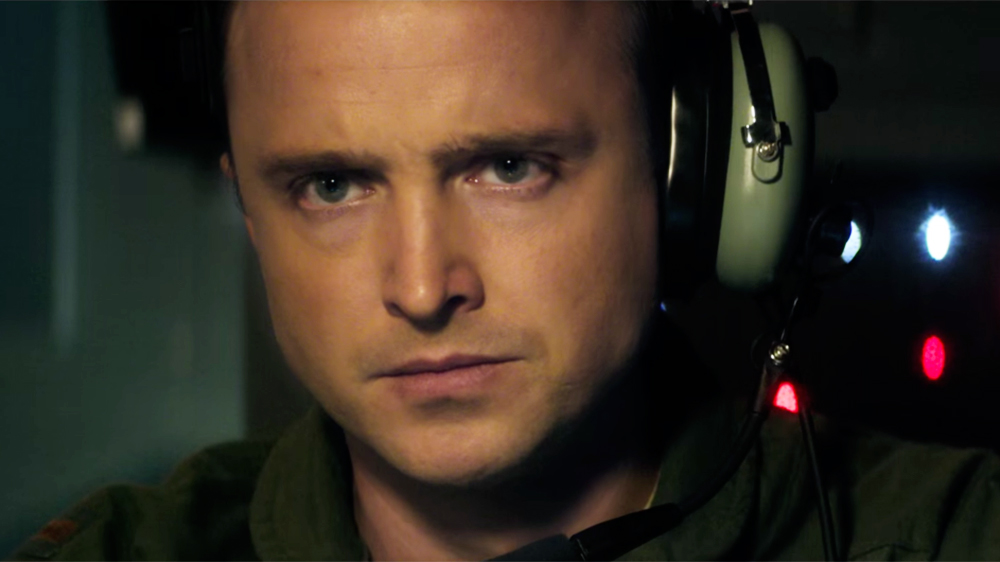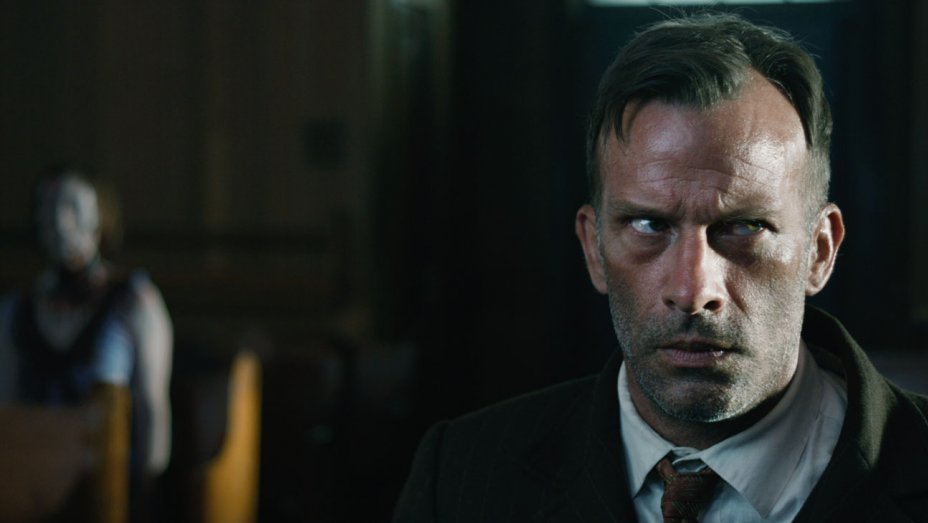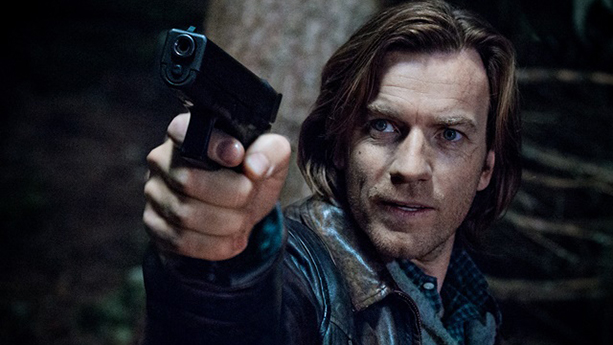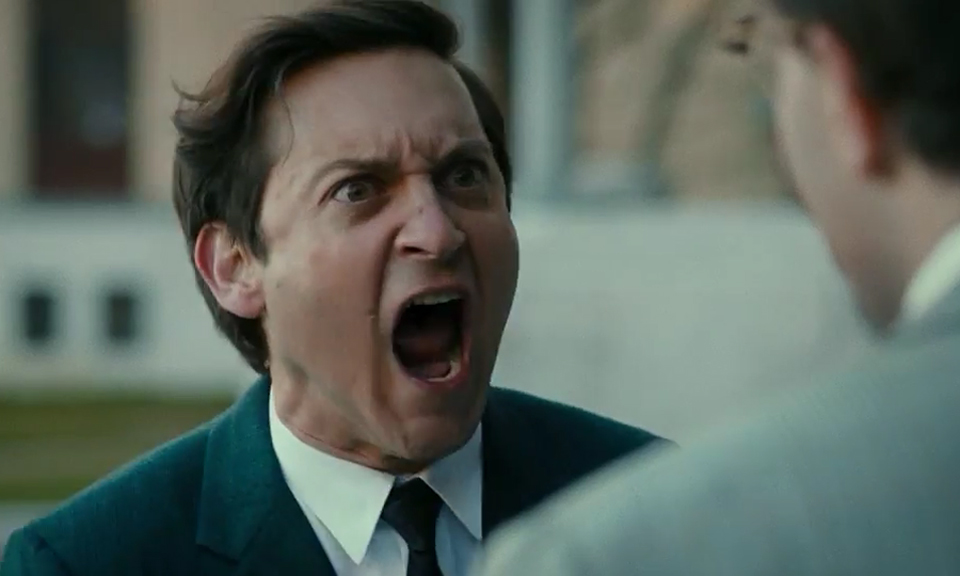
A great thriller can simultaneously leave a viewer dazzled and overwhelmed, and thrillers that challenge the norm and make bold decisions are able to leave impressions that last long after the credits close. This decade has had many great thrillers that were provocative, terrifying, and rewarding, but unfortunately these are often the films that audiences tend to pass over for more traditional fare.
Many of these great thrillers deserve much more attention than they first received, and made interesting choices that will surely challenge the viewer to engage themselves within the story and characters. Here are ten great recent thrillers that you probably haven’t seen.
10. Buster’s Mal Heart

Before winning an Academy Award for Bohemian Rhapsody, Rami Malek gave a very different performance as a family man turned fugitive in the mind-blowing surrealist thriller Buster’s Mal Heart. The film takes place over multiple timelines, with Malek’s character Buster existing as both a struggling father who takes care of his wife within their secluded religious community and a conspiracy-driven mountain man who flees the grasp of the local authorities. It’s unclear how these timelines intertwine at first, and the shocking juxtaposition of a seemingly normal life with one of insanity sets up a mystery of how this character turned out the way he did.
Buster becomes slowly indoctrinated to radical thinking from an enigmatic stranger who feeds him information about Y2K type conspiracies, and in other dimensions Buster is left in bizarre survival scenarios where he’s floating adrift at sea or stuck on a snowy mountain. This is a film that’s more shocking elements come from Buster’s warped perception of reality, and while there are hints that Buster has exaggerated or imagined certain events, it’s up to the viewer to decide if he was purposely sabotaging his own memory.
Buster’s Mal Heart considers whether there can ever be a true balance between peace and truth, and those that enjoyed Malek’s performance on the series Mr. Robot may enjoy seeing him take on another complicated character wrestling with his identity.
9. 1922

Stephen King adaptations are more popular than ever right now, but one sinister King tale that’s gone heavily under the radar is the adaptation of 1922. With heavy allusions to the classic Edgar Allen Poe story “The Tell-Tale Heart,” 1922 explores the slow rotting of the human spirit following a horrible crime, and follows Thomas Jane as a grizzled farmer whose guilt over murdering his own wife manifests itself with literal demons.
The film wastes no time in getting to the fateful murder, which is carried out with excruricating detail to the resources avilable at the time, and then shows the everlasting scars that this crime impresses upon Jane’s character Wilfred James and his son, Henry.
It’s the father-son relationship that drives the film’s tension; James inserts seeds of discontent within his son’s life in order to convince him to agree to the crime, but as Henry wrestles with his own guilt he realizes there is no compassion within his father, and he has no true justification for their actions other than blind rage.
While James’s actions are unforgivable, his motivation is well set up, as his wife’s desire to sell their land and move their family to the city undermine the pride James has for his property and the life he envisioned for his son. Thomas Jane delivers what is quite simply the best performance of his career, and fans of recent King adaptations should give 1922 a shot.
8. Our Kind of Traitor

There have been many great works based on John le Carre novels, including the films Tinker Tailor Soldier Spy, A Most Wanted Man, and The Constant Gardener, as well as the great shows The Night Manager and The Little Drummer Girl. One of the most underrated le Carre adaptations is 2016’s Our Kind of Traitor, which unlike many other le Carre adaptations does not follow a super spy, but an everyman forced into extraordinary situations.
Ewan McGregor stars as Perry MacKendrick, a university professor who while on vacation becomes unwittingly acquainted with the Russian money launderer turned double agent Dima (Stellan Skarsgard), who seeks protection from the British government in exchange for classified documents.
The film is able to bring the viewer into the ruthless espionage world through the eyes of an outsider, and it’s interesting to see how adept Perry is to this very different world; while he lacks the knowledge of international politics, he’s a great communicator and is able to help his new friend negotiate with his enemies and maneuver away from hazardous situations. It’s completely believable that these two would form a friendship; Perry is going through a difficult point in his marriage and Dima feels ostracized from his community, and the shared sense of isolations bonds the two.
Additionally, there is a very strong performance from Damian Lewis as an MI6 agent who deceives all the players involved, but also becomes sympathetic when he reveals his tragic relationship with his son. Our Kind of Traitor is a sturdy adaptation that doesn’t shy away from the complexity of espionage, but digs deeper into human relationships that other le Carre adaptations.
7. ‘71

While it contains no supernatural elements or jump scares, ‘71 is by far one of the scariest films of the decade; this claustrophobic depiction of a lone soldier’s abandonment during the 1971 Belfast riot is a sickening survival thriller that gets the viewer uncomfortably close to the terrifying feeling of being alone in a city of enemies.
While the film can be examined for the political ramifications of the riots and the commentary on how the British Army swept the event under the rug, it is first and foremost a thriller with a kinetic lead performance by Jack O’Connell. O’Connell delivers raw pathos in his performance as novice soldier Gary Hook, and the resulting situations are the embodiment of any new recruit’s worst nightmare.
The scene of chaos breaking out between protestors and the British Army is carried out brilliantly; what starts off as an attempt to gain a reaction from the Army sets off volatile feelings that inevitably lead to violence. Once Hook is abandoned, he’s faced with surviving in an unknown environment where he must conceal his identity, and the film’s docudrama sense of realism find kinetic horror in the normalization of violence, particularly that among youths.
It’s also impressive that the film centers heavily on Hook, but is aware of the surrounding political factors that impact him, including a covert military operation to sneak back into the city and a rising insurgency between Loyalists, the Provisional Irish Republican Army, and the Official Irish Republican Army. The perpetual sense of dread pays off with an exhilarating finale, where filmmaker Yann Demange accepts the body count but focuses on the importance of one life.
6. Pawn Sacrifice

Tobey Maguire is undoubtedly a very talented actor, but throughout his career he’s generally been tasked with playing the soft, empathetic hero, and it’s clear that Maguire can show a darker side of well. This is apparent in Pawn Sacrifice, in which Maguire portrays legendary chess player Bobby Fischer as an obsessive, temperamental genius whose paranoia and search for perfection shroud over his abilities.
Ficher’s story is centered around his legendary match at the World Chess Championship in 1972 against Boris Spassky (Liev Schreiber), an equally brilliant Russain player who utilizes Bobby’s anxieties to his advantage. Maguire does some of the best work he’s ever done; he’s often terrifying in his ability to belittle others and is crushed over the responsibilities he has as Cold War politics become a factor within the games.
The title itself can be seen as a reference to the fact that Fischer and Spassky are both just pawns by their governments, and the film does a good job at showing the begrudging respect that exists between the two purely on the admiration of each other’s abilities. While Spassky is less openly sporadic as Fischer, it is shown that Fischer’s demands and anger have an impact on Spassky’s mental health and his ability to function under pressure.
The chess games themselves are electrifying to watch, and even for those not well versed in chess, there’s great dramatic material as a disillusioned Fischer becomes even unsatisfied in his own victories. Filmmaker Edward Zwick has frequently proven to be masterful at crafting epics like Glory, Legends of the Fall, or The Last Samurai, but with Pawn Sacrifice he proves that he can do engrossing, psychological thrillers as well.